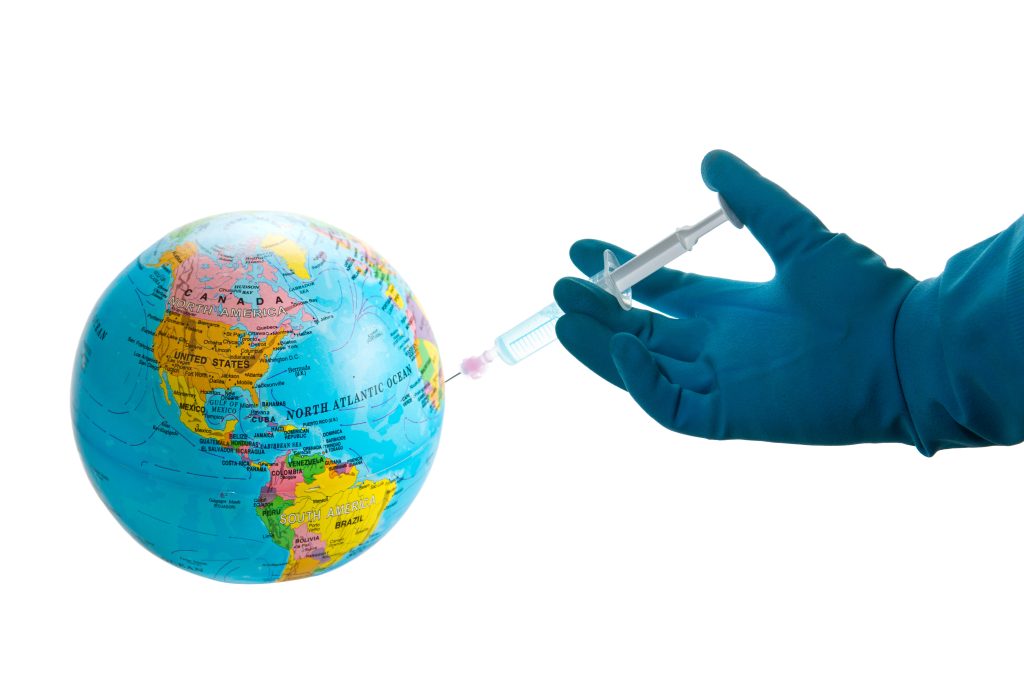
The 2023-24 GYA Sasha Kagansky Interdisciplinary Grant was awarded to Mohammad Hosseini (Northwestern University, USA), Muhammad Zaffar Hashmi (University of Lahore, Pakistan), Leila Niamir (International Institute for Applied Systems Analysis, Austria), Estrella Díaz Sanchez (University of Castilla-La Mancha, Spain) and Sandra López-Vergèz (Gorgas Memorial Institute for Health Studies, Panama) for their project: An interdisciplinary database of ethics dumping cases.
With an increase in global and multinational research collaborations over the last decades, research groups have adopted different strategies to minimize costs or speed up the research process. One such strategy is to outsource specific parts of their research to low- and middle-income countries (LMICs) to exploit weaker regulatory systems or limited oversight in these countries. This practice is called ethics dumping and facilitates research that would otherwise be heavily scrutinized or not be allowed in high income countries. Ethics dumping disproportionately affects vulnerable populations and erodes trust in science.
This GYA project aims to create an interdisciplinary database of cases of ethics dumping. The project participants, GYA members from different disciplines and world regions, will work together with a research assistant towards achieving the following objectives:
About the GYA Sasha Kagansky Interdisciplinary Grant
The GYA includes a diverse membership of scientists and scholars, in many disciplines, based in low/middle-income and high-income countries. This grant scheme was initiated in 2014, aiming to foster collaboration across the lines that often separate researchers and limit possibilities. Specifically, this scheme facilitates the development of small-scale, innovative, curiosity-driven, blue-sky, exploratory research pilots or prototypes that unite researchers in low/middle-income and high-income countries and cross disciplinary boundaries.
The Sasha Kagansky Interdisciplinary Grant is awarded annually, and is meant to provide seed money to enable GYA members to prepare a proof of concept, prototype, or pilot research project with a view to securing larger external funding. The grant was re-named in 2021 in honor of late GYA member Alexander (Sasha) Kagansky.
See all GYA Sasha Kagansky Interdisciplinary Grant projects here: Sasha Kagansky Interdisciplinary Grant Archives – Global Young Academy
N/A
Project co-leads, in collaboration with a research assistant, have worked to refine their working definition of “ethics dumping” and to develop a schema and code book for collecting ethics dumping cases. The project now distinguishes between two forms of ethics dumping: International and domestic.
International ethics dumping, mentioned more often in research and more prevalent, refers to cases when researchers based in high income countries conduct research in low/middle income countries in ways that ultimately circumvent ethical guidelines. Domestic ethics dumping refers to researchers in affluent regions of a given country conducting research in comparatively lower income regions within this same country in ways that ultimately circumvent ethical guidelines.
Project co-leads continue to work on three main deliverables: 1. A database of ethics dumping cases; 2. A comprehensive literature review; and 3. A survey to distribute among GYA members.
The project works with the GYA Trust in (young) Scientists Working Group, aligning with their goal of better explaining how science works, and with the aims of the GYA to increase scientific capacity and improve the state of the world using evidence-based research.
Upcoming
Mohammad Hosseini and Leila Niamir will present a poster at the World Conference on Research Integrity (June 2024, Athens, Greece) on this project and its aims.
May 2024
Mohammad Hosseini presented the work of this grant project in a “Lightning Talk” at the GYA’s 2024 Annual General Meeting and International Conference of Young Scientists in Washington, D.C., United States.
April 2024
The article “Investigation of Ethics Dumping Cases“, outlining the work of this grant project, was published by Mohammad Hosseini and research intern Adam DiMascio in Northwestern University’s newsletter.
February 2024
Mohammad Hosseini presented at the Association for Practical and Professional Ethics International Conference, in Cincinnati, Ohio, USA.
© 2024 Global Young Academy